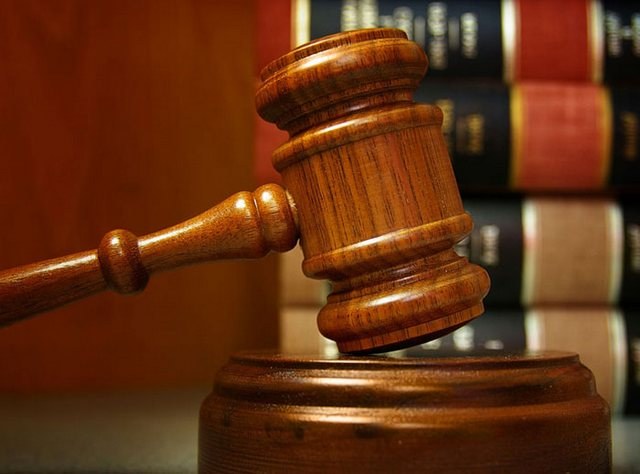Branch of law – is a separate element of the General system of law, combining legal norms designed to regulate a particular area of relations. The industry is characterized by the presence of a particular method and subject of legal regulation.
Industry in turn is divided into separate but interrelated parts, called the institutes of law. Currently, all the legal field is divided into the following branches: constitutional, administrative, financial, criminal, environmental, civil, family, labor, land, forced labor, criminal procedure, civil procedure, arbitration procedure, international public and international private law.
Constitutional law – fundamental industry of the legal system, unifying the norms of regulatory framework of public and state system. Defines the rights and duties of citizens, Executive authorities and officials, the competence of higher authorities.
Administrative law combines the rules governing the public administration, rights and responsibilities of the state bodies and officials, govern the relationship between them and citizens, defines the types of administrative offences and responsibility for them.
Financial law – regulates the relations connected with creation, distribution and use of financial funds of the state. Regulate all property relations arising in the state.
Criminal law – norms defining the principles of criminal liability types of crimes and responsibility for them. Criminal law are mostly prohibitive.
Civil right – a fundamental right subject to regulation which are proprietary and related personal non-property relations of citizens. This branch includes genetic, copyright, patent and business law.
Environmental law is a new branch of law, the rules which govern the actions of citizens, legal persons and States on the protection of the environment and use of natural resources.
Family law regulates personal non-property rights of citizens in marriage and the family as well as kinship, adoption, custody and related property relations.
Labour law regulates the relationship between employer and employee in all forms, public and private enterprises, institutions and organizations.
Land law – right regulating the relations concerning the ownership, exploitation and use of land. Regulates all issues related to treatment, increase fertility, protection of land resources.
Corrective-labour law – rules of this branch govern the issues associated with sentencing, conditions of location of convicted persons in correctional labour institutions, conditions for the functioning of these institutions and of the entire penal system.
Criminal procedural law – defines the procedure for the handling of criminal cases during inquiry, investigation and handling of the case by the court.
Civil procedural law – public law, regulating civil procedure: cases arising out of family, labour, environmental, land and administrative disputes.
The arbitration procedural law determines the rules governing relations between business entities among themselves and between them and state bodies, and also regulates some administrative disputes.
Public international law is not part of national law. Unites contract, convection, covenants and other international agreements governing relations between countries and international organizations.
International private law regulates civil, labor, marriage and other personal relationships, which have an interstate character.
Existing industry
Industry in turn is divided into separate but interrelated parts, called the institutes of law. Currently, all the legal field is divided into the following branches: constitutional, administrative, financial, criminal, environmental, civil, family, labor, land, forced labor, criminal procedure, civil procedure, arbitration procedure, international public and international private law.
Brief description
Constitutional law – fundamental industry of the legal system, unifying the norms of regulatory framework of public and state system. Defines the rights and duties of citizens, Executive authorities and officials, the competence of higher authorities.
Administrative law combines the rules governing the public administration, rights and responsibilities of the state bodies and officials, govern the relationship between them and citizens, defines the types of administrative offences and responsibility for them.
Financial law – regulates the relations connected with creation, distribution and use of financial funds of the state. Regulate all property relations arising in the state.
Criminal law – norms defining the principles of criminal liability types of crimes and responsibility for them. Criminal law are mostly prohibitive.
Civil right – a fundamental right subject to regulation which are proprietary and related personal non-property relations of citizens. This branch includes genetic, copyright, patent and business law.
Environmental law is a new branch of law, the rules which govern the actions of citizens, legal persons and States on the protection of the environment and use of natural resources.
Family law regulates personal non-property rights of citizens in marriage and the family as well as kinship, adoption, custody and related property relations.
Labour law regulates the relationship between employer and employee in all forms, public and private enterprises, institutions and organizations.
Land law – right regulating the relations concerning the ownership, exploitation and use of land. Regulates all issues related to treatment, increase fertility, protection of land resources.
Corrective-labour law – rules of this branch govern the issues associated with sentencing, conditions of location of convicted persons in correctional labour institutions, conditions for the functioning of these institutions and of the entire penal system.
Criminal procedural law – defines the procedure for the handling of criminal cases during inquiry, investigation and handling of the case by the court.
Civil procedural law – public law, regulating civil procedure: cases arising out of family, labour, environmental, land and administrative disputes.
The arbitration procedural law determines the rules governing relations between business entities among themselves and between them and state bodies, and also regulates some administrative disputes.
Public international law is not part of national law. Unites contract, convection, covenants and other international agreements governing relations between countries and international organizations.
International private law regulates civil, labor, marriage and other personal relationships, which have an interstate character.


